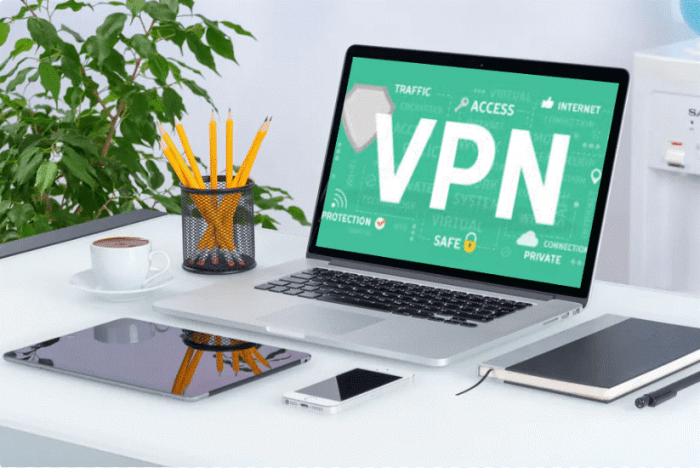
If you are an individual user, relying on VPNs (Virtual Private Network) is an excellent tactic to secure your information from prying eyes online. As far as IT professionals and businesses go, the situation is extremely different.
A VPN is undoubtedly a right step in the right direction, but, as far as the corporate or business VPNs go, they are falling short on different fronts. If we talk about the pre-COVID-19 era, a business VPN was an ideal solution to access organizational resources from anywhere securely.
But, after the coronavirus pandemic, this efficient online security tool has lost its charm to a certain extent. As we all know, remote working has become a necessity rather than a luxury. Due to this reason, a large number of employees are turning to business VPNs while working remotely.
However, these corporate VPNs are facing challenges when it comes to fulfilling businesses’ network security and data privacy demands accordingly. Here are different downsides or drawbacks related to the existing business VPNs:
Corporate VPNs are challenging to set up for business users
Individual users have to download and install the VPN apps on their devices; that’s it. On the other hand, business users or employees may find it difficult to set up private networks within home premises.
It can increase the complexity level of your network connection quite considerably. In addition to this, it will influence the performance of each device you use for the official purpose. Apart from this, you will have to deploy a dedicated network management team to manage and analyze the impacts of VPN connection networks on your remote working experience and your business.
Business VPNs are physically restricted
Corporate VPNs exist in the form of an on-premises appliance within the workplace. Moreover, only a limited number of employees can connect to Business VPNs at a time. Unfortunately, different businesses did not prepare themselves for the remote working scenario amid the COVID-19 crisis.
As a result, companies are unable to support the online privacy needs of their remote employees. They are opting for secondary solutions other than business VPNs like remote desktop connections. However, this specific strategy has its own privacy issue and therefore will not help them in the long run.
Business VPNs do not offer a workable solution in terms of productivity and security
Business VPNs often fall short when it comes to balancing employees’ productivity and security. Organizations are responsible for increasing both their employees’ productivity and online safety but it does not happen most of the time.
When an organization starts using a corporate VPN, it must ensure that all the official traffic should be routed through the assigned security infrastructure. This way, traffic can be expertly filtered. But, during the process, it overburdens the VPN, web gateways, and firewalls as well.
Above all, it negatively affects the productivity of employees due to the subsequent substandard user experience. However, it is not a one way traffic at all if we talk about employees’ productivity and security, they do not follow the required security measures appropriately and compromise sensitive information by infecting their official devices through viruses or malwares.
Remote employees may reveal their official information while using Business VPNs
If you are using a business VPN as a remote employee, then it does not mean that you are completely safe. A VPN service can expose your original IP address, DNS or WebRTC information if it suddenly stops working for any reason.
It means your crucial business information is visible and accessible to everyone including cyber goons like hackers and other cybercriminals.
Common VPN issues associated with Business VPN
 > My VPN is not connecting
> My VPN is not connecting
This is one of the most common issues remote employees face regularly. Despite being shown as connected and online, you cannot access certain websites and resources at times.
> My internet connection is slow
This is another issue you have to deal with at the time of using a business VPN. Sadly, some traditional VPNs are not designed for the age of superfast broadbands and 5G connections and depend on outdated communication technology quite heavily. As a consequence, the network speed gets slower, and you face issues while streaming and other web surfing activities.
> I am experiencing issues with my video conference
Due to coronavirus pandemic, video calls have turned out to be an ongoing official activity. However, when you do such activity while connected to a business VPN, you have to experience issues in the shape of patchy streaming and broken conversations.
> Re-Authenticate and log in frequently
Every VPN you use performs an authentication process to verify whether real subscribers are using its services or not. Therefore, it becomes quite frustrating for users to log back in several times a day if they are working on dynamic or unstable networks.
> Reload several times a day as soon as the network drops
Remote workers need to be patient; otherwise, they can quickly become irritated due to recurring or multiple reconnects issues. Business VPNs connections get unstable, and because of this annoying reason, they have to restart their web or app sessions right from scratch repeatedly.
Business VPNs common solutions

> Restart the software
By restarting your device, your VPN may start working hassle-free. This trick can do wonders, believe it or not.
> Update your OS
No matter if you are using business VPNs on desktop or mobile devices, your business VPN might conflict with the versions of Windows, Mac, Linux, Android, and iOS platforms. Thus, you should update your existing operating systems with the latest versions regularly.
> Remove other VPNs
A handful of VPN services get along with each other nicely. Hence, you should disable the previously installed VPNs on your official devices if you are unable to launch the current business VPN.
> Update your VPN apps
You should update your VPN apps by visiting the official website or the app store frequently. By doing so, you can replace your outdated apps with the latest ones in no time.
> Consider a VPN alternative
Depending on a company or organization’s needs, perhaps using a business VPN is not completely necessary. If the main concern is gaining secure access to an internal file, for example, then perhaps it makes more sense to use a remote access solution that does not require the client or server-side installation.
Wrapping Up
Interestingly, 74% of organizations will permanently transfer their 5% on-site workforce to remote positions following the coronavirus crisis’s impacts. There is a strong likelihood that the use of business VPNs across the globe will increase at a brisk rate in the coming years.
It is high time for organizations or businesses to look for other evolving technologies that are ideal for fulfilling the requirements of scalable and modern remote working.





